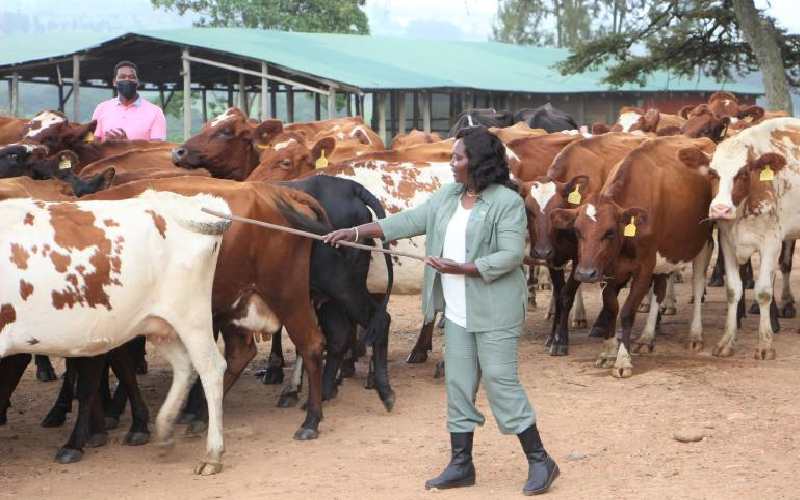×
The Standard e-Paper
Stay Informed, Even Offline

Alice Chesire with her cows at Makongi Farm in Uasin Gishu County. [Peter Ochieng, Standard]
Nestled in a fertile valley between the Cherengany Hills and Mt Elgon lies Makongi Farm, popularly known as home of Ayrshires.